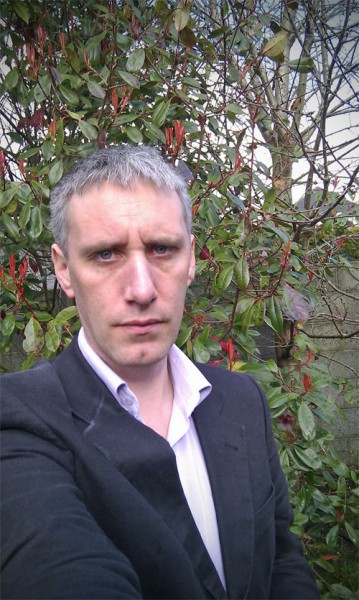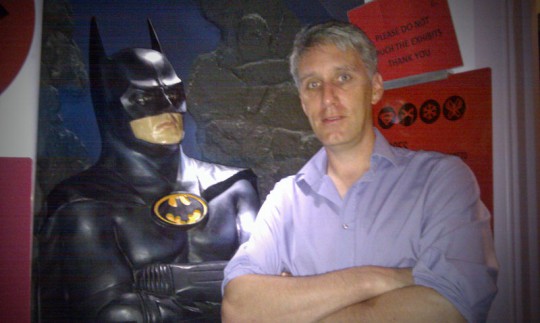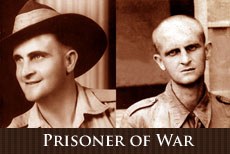Friday has arrived and a week of the holidays have passed. I will not carry on for too long tonight and we shall get straight into the Friday Follow Twitter Interview. Tonight’s special guest is Fred Boss. Fred is an educator from Ireland and he was recommended to me by Liam Dunphy, our previous guest on the interview. There is a nice surprise at the end of tonight’s interview. Let’s begin.
1. Please share a little about yourself with the readers.
 My name is Fred Boss and I have been an Art Teacher [http://www.artteachers.ie/] for 18 years in a secondary school in Dundalk in Ireland. For the last 4 years I have been seconded to the National Centre of Technology in Education, where I have been working in teacher continuing professional development. I’ve worked on putting together our Web 2.0 course for teachers as well as ensuring the running of courses throughout the Education Centre network and also online through first Fronter and now Moodle as a platform. Part of my work in Moodle is delivering online courses and administering the online community of practice for post primary ICT Coordinating Teachers in Ireland called e-Links.
My name is Fred Boss and I have been an Art Teacher [http://www.artteachers.ie/] for 18 years in a secondary school in Dundalk in Ireland. For the last 4 years I have been seconded to the National Centre of Technology in Education, where I have been working in teacher continuing professional development. I’ve worked on putting together our Web 2.0 course for teachers as well as ensuring the running of courses throughout the Education Centre network and also online through first Fronter and now Moodle as a platform. Part of my work in Moodle is delivering online courses and administering the online community of practice for post primary ICT Coordinating Teachers in Ireland called e-Links.
I became a computer teacher from day one in the school in Dundalk as we had just got a new computer room and so have been teaching and working with computers from the very start. A lot of the earlier work I did with classes was with the Microsoft Office suite of programs, however, after a while I felt that there was more that could be done. At the time though, we didn’t have classroom-based PCs, so I would have to bring my class/students to the computer room if we needed to work on any projects. One major project was working with students to produce the school magazine using MS Publisher. I also taught parents how to use a computer and the Internet.
After a few years of “normal” classroom work, I began to get involved in more Internet-related projects which involved other teachers and schools across Europe. I became the Irish pedagogical liaison for an event called Spring Day which celebrates European citizenship by running projects and collaborative talks in schools throughout Europe. This was run by the European Schoolnet and I also worked on a number of other projects for the EUN as well such as Futurenergia.
Just before I was seconded, I began to work with the students in my school on becoming journalists with World Youth News. This involved my students following an online course to become certified as journalists. As we got involved fairly early on and English was our main language, we also became editors on the project. So, my students would receive stories from others across the globe and have to edit them before publication. These stories are available to schools to use in their own publications, once the source is cited. I think it’s a great way to add an international flavour to any school publication.
2. Describe the role played by social media in education.
I think that it’s only in the last few years that social media has really taken off within schools. Saying this, I acknowledge that, understandably, there are schools still who approach this with a degree of caution. When I was working in my own school the nearest use we would have experienced of any kind of social media on the Internet was limited to interacting with other schools through projects or live discussions. Social really was social in the sense that it was used mainly for synchronous activities – a virtual face-to-face.
I think that social media as it is today has a very important role to play in the life of a school. We all live in and are part of a society. We are used to interacting with people on a face-to-face basis and our society is made up of very many different facets. It’s the same within a school. The majority of the interaction in school is still very much face-to-face, but can involve the wider school community of parents, outside organisations/businesses and the bodies in charge of educational policies. It’s very difficult to keep focused on all of these many different parts of a school society at the same time.
However, I feel that you shouldn’t have to! Not everyone in a school is involved in everything that happens at every level.
Social media is easily adaptable so that only the areas of your interest as a teacher, student, parent or even education policy maker need to be the ones that you see and interact with. Social media in education can be set to bring you only the information you need. However, there are times when the different areas of interest of a school society naturally cross-over. Social media (such as Twitter, for example) can be set to allow people a glimpse of what’s going on in other spheres of activity in the school and the wider community. If the interest is more than just a passing one, social media is immediately adaptable to take on board that interest and to allow you to find out more/get involved on a level you are comfortable with. Basically, it brings the information to you and you can then choose your own level of interaction.
As a final answer to this question, I would advocate schools and classrooms to follow #ccGlobal on Twitter and to enter into the spirit of Connected Classrooms across the globe. Liam Dunphy, an Irishman, now teaching in Australia (and also one of your previous interviewees) has set up Connected Classrooms as a way to bring classes and students together over the Internet from across the world. You can find out more from here: http://connectedclassrooms.wordpress.com/projects/ccglobal/
3. Tell me about your relationship with social media. How do you feel about social media?
I enjoy using social media very much, with Twitter being my main method of communication. I am slightly addicted to Twitter, I must admit. Although I joined the service in 2007, it took about 2 years for me to really get comfortable with it. I have a Google+ account and I feel that, although I have posted more on it than I initially did on Twitter, it might take a while before I adjust to using Google+ more.
The thing I like about Twitter is that your account can be used to authorise access to other online services, which means they are all tied together and so by using one I can access a range of others and then what I do there is Tweeted back through my Twitter account if I want it to be.
Here’s what I use my Twitter account for:
I initiated a Tweet-based chat along the lines of the highly successful US #edchat which I called #edchatIE. The “IE” stands,not just for Irish Educators, who it’s aimed at, but also the domain code for Ireland. We chat every Monday night between 8.30-9.30pm (Irish time) on all aspects educational in Ireland.
However, I use my Twitter account to access www.twtpoll.com where I can set up a poll to both collect the topics we might talk on later as well as to collate the votes that are cast to choose that very topic of discussion. You can learn more about #edchatie from the Wiki and you can see our past 30 chat transcriptions here. I then would use http://www.tweetdoc.org/ to collate the transcripts the morning after the chat has taken place. These I publish for all on the Wiki.
I have my own newspaper too, that comes out every day. It’s based on my Twitter account and the Tweets and RTs (ReTweets) I send out, as well as those of the people I follow and who follow me. It’s a great way to aggregate information and is totally automatic.
During April 2011, I worked with Simon Lewis, a primary school Principal in Carlow in Ireland on creating events for teachers and their classes called the Twitter Art Project. We used the hashtag #TAP2011 ( unfortunately, now being used by another group – such is the nature of social media) to allow all those involved to follow each other. I came up with a Twitter Art Treasure Hunt, which saw classes in schools across Ireland, following Leo_the_V (an artistic vole) as he gave clues that had to be solved in order to collect puzzle pieces. The puzzle pieces could be then printed and put together to re-create a famous painting. All of this took place through the medium of Twitter with classes also getting rewards of media files connected to the clues they solved in the form of Qwiki links. Try it out as the site is still there. I’m no longer accepting answers through it, but all of the links are there and working still. I loved the way that social media could be used in this way – it created a great buzz for that week.
On the other side of social media, Facebook, however, is one service I don’t really use. There are a lot of discussions around just how safe it is, how they keep changing their privacy rules, etc… which don’t really worry me at all (as I don’t use it to any degree). I have never found that way of connecting with colleagues and friends of much interest to me. I guess it’s just a feeling I have about Facebook and so I have an account, but it is fairly dormant.
That’s the thing about social media – you have to pick and you have to choose what’s right for you in the way that you interact online.
4. What do you feel are you strengths?
I tend to RT (ReTweet) a lot through Twitter. This is mainly due to time constraints. However, I feel it is one of my strengths as well as I think I help to connect others with information that I have seen coming across my Twitter Stream. It’s also good to push out ideas of people you know are completely pro-education online too. For example, in our last #edchatie (26th Sept 2011) while discussing Interest Based Learning, I saw some Tweets that reminded me of @gcouros and his idea of an “Identity Day” – students using their interests to explain who they are. He has a great Animoto video that you can watch here: http://animoto.com/play/jEZW0gGIeCxntkavQ7U5iA
5. What advice do you like to share with people?
 When sharing advice that I have come across on the web (mainly through Twitter) I would always check through the links being posted first. I feel that if I’m going to RT something, I should at least verify that it is a real and actual link that has worthwhile information that could be of interest to the many educators and groups I connect with.
When sharing advice that I have come across on the web (mainly through Twitter) I would always check through the links being posted first. I feel that if I’m going to RT something, I should at least verify that it is a real and actual link that has worthwhile information that could be of interest to the many educators and groups I connect with.
I like to try out new Web 2.0 services and some of them I do actually recommend to others. I don’t have time to invest in many of them as I probably should (but then again, there are so many that there are too many). However, some do catch my interest and I use them and then Tweet about them or mention them to people as I meet them in person.
I tend to always sign up to new web services – I have a graveyard full of old accounts to services I just don’t have the time to devote my attention to. But I would recommend that people do take a chance with a new service that appears online. You never know which one will be the “next BIG thing” (it could even be Google+). Sometimes you just have to take that chance. For educators, though, it does mean also working out how it can be used in class with your students – whatever their ages.
6. Are there any questions you would like to ask?
Twitter for me is (at the moment) my main way of sharing information, so, I would like to ask others reading this of their experience on Twitter and that if interested in education, that they follow me on Twitter -> @fboss
{This can be left out of the interview if you see fit to: By the way, if this is going out on the Friday 30th September, thank you -> this is my Birthday!}
Happy Birthday Fred! A brilliant set of responses and once again I shall digest your responses this evening and respond via a comment tomorrow. You have shared and offered so much to our readers this evening and I entreat all readers to promptly add Fred to your Twitter timeline. Here is a list of Fred’s presence on the web…
- Fred on Twitter: http://twitter.com/#!/fboss
- The fBoss Daily
- edChatIE Wiki
- edChatIE Summaries
- Twitter Art Treasure Hunt









Oct 01, 2011 @ 01:14:48
Outstanding interview Fred, very insightful and wonderfully informative. I have learned so much from you since connecting through #ccGlobal. Thanks for the mention and recommendation. I very much appreciate it.
Happy Birthday mate, have a great week-end and maybe say hi to a few Arthur G from me to celebrate it. All the best, Liam
Oct 01, 2011 @ 08:31:37
Inspiring read. It truly is amazing to hear about all the wonderful educators out there! Lucky students. Happy birthday!